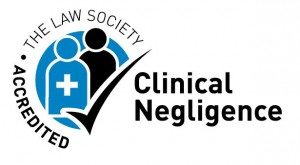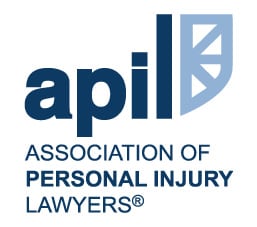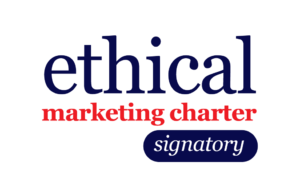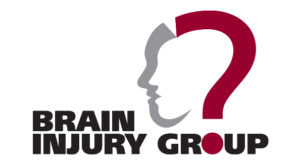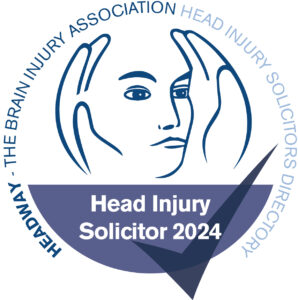Where a brain injury is a result of medical negligence or in the case of an accident, from the actions of another, a compensation claim may exist. At Lester Aldridge, our personal injury solicitors have a clear understanding of the complex issues which arise in any acquired brain injury case. We use that expertise and our first class claim handling service to help secure compensation and rebuild lives.
We commonly take forward brain injury compensation claims in the following areas:
Acquired Brain Injury
Acquired brain injury is a catch all phrase for any brain injury that has occurred any time after birth. It may result from a tragic accident, such as a road traffic accident, or from a medical condition, such as a stroke, and can often occur in circumstances where the injury was avoidable but for the negligence or actions of a third party.
Anaesthetic Mistakes
Anaesthesia is a drug-induced state that facilitates pain free medical procedures. There are three main types of anaesthesia to include:
- General – where the patient is completely unconscious
- Local – where anaesthesia is applied to numb a specific area
- Regional – where a larger area is anesthetised
No anaesthesia is without risk. Injuries can inevitably result in circumstances where mistakes are made either in relation to the type of anaesthetic used or during or after administration.
The most common types of anaesthetic mistakes are:
- Administering the wrong dosage
- Improperly intubating the patient
- Failing to properly monitor the patient
- Not recognizing complications as they develop
- Failing to monitor the delivery of oxygen to the patient
- Accidentally turning off the alarm on the pulse oximeter, which measures the oxygen level in the patient’s blood
- Not providing proper surgical preparation instructions
- Improper positioning during a general anaesthetic
An error in anaesthesia which results in brain injury can lead to a compensation claim. Our personal injury lawyers are highly experienced in this area.
Brain Tumours
A brain tumour is a growth of cells in the brain that multiply in an abnormal way. They can be cancerous or non-cancerous. A brain tumour may go undetected for some time. Brain tumours can affect anyone. Inevitably the prognosis is entirely dependent upon the type of tumour, how early the diagnosis takes place and the tumour growth.
Because symptoms vary with brain tumours they can often go undetected for some time. Often symptoms can be missed on presentation to a GP or other medical practitioner resulting in a delay in diagnosis. A primary tumour needs to be treated as soon as possible to prevent spread and damage to the brain and spinal cord.
Surgery on the brain is a serious operation. Complications during or after surgery can include bleeding, infections, brain damage or death.
Common types of brain tumour compensation claims include:
- Delay in diagnosis
- Failure to investigate and refer in a timely fashion
- Failure to offer appropriate treatment
- Failure to provide the correct surgery or a surgical error
- Delay in carrying out all appropriate radiological investigations and interpreting.
Our personal injury solicitors have a particular knowledge of these issues and are well versed in investigating and evidencing compensation claims where catastrophic brain injury has occurred.
Cerebral Palsy
Brain injuries often result from oxygen deprivation. Hypoxic ischemic Encephalopathy (HIE) is a birth injury that describes starvation to the brain and the consequences that result from oxygen deprivation.
The most common brain-related injury at birth is cerebral palsy (CP). CP can develop after maternal infections, oxygen deprivation, infant stroke, infant infections. In many cases, CP could have been avoided with better and alternative treatment and care. Common examples include:
- Failure to monitor, detect and treat maternal infections
- Failure to plan and carry out an emergency caesarean section
- Failure to monitor fetal distress and facilitate an earlier delivery
- Failure to identify and treat a prolapsed umbilical cord
- Failure to use birth assisting tools such as forceps correctly
Cycle Accidents
According to RoSPA, around 80% of cycling accidents occur in daylight which is when most cycling takes place. The most dangerous hours for cyclists are 3.00 to 6.00 p.m. and 8.00 to 9.00 a.m. on weekdays.
When a cycling accident is caused by another person you will be able to claim compensation for your injuries if you can show that they were responsible for the collision. A road accident can occur because of any number of reasons. Most accidents occur mainly because of someone’s negligence (drivers using a mobile phone, eating or drinking at the wheel, changing music in the car, or to them being under the influence of alcohol or drug consumption while driving), weather conditions can also play a part along with driver recklessness or even poor road maintenance.
Our personal injury solicitors (many of whom are cycle enthusiasts) are highly experienced in investigating and taking forward brain injury compensation claims resulting from a cycling accident.
Encephalitis Negligence
Encephalitis is the term used to describe a swelling or inflammation of the brain. It usually results from a viral infection but can also be caused by a problem with the immune system or bacterial or fungal infection. Common causes include viruses such as glandular fever, flu, mumps and even cold sores.
It is a relatively rare event which (according to the Brain and Spine Foundation) affects around 4,000 people in the UK annually. Encephalitis is an extremely serious condition which can be life threatening and requires urgent medical treatment. The earlier that a diagnosis is made and treatment started the more successful it is likely to be and the better the outcome.
Some people will make a full recovery with prompt medical treatment. Sadly, others do not and can be left with brain injury and residual symptoms.
Brain injury compensation claims may arise in circumstances where there has been a delay in diagnosis and in affording medical treatment. For example, a GP or hospital clinician may fail to suspect encephalitis despite noting the symptoms. The symptoms may be thought to be more in keeping with another condition such as meningitis, a stroke or brain tumour leading to a delay in diagnosis. In addition, in circumstances where a diagnosis is made, there may be a failure to treat promptly or to provide all appropriate treatment.
Medical negligence claims related to encephalitis are complex. A successful compensation claim necessitates a forensic approach to any investigation, which will serve to build a timeline of treatment. We pride ourselves on our ability to obtain and marshal all necessary expert evidence and to take forward a successful compensation claim.
Meningitis
Meningitis is an infection of the protective membranes that surround the brain and spinal cord (meninges). It can affect anyone but is most common in babies, young children, teenagers and young adults. Meningitis can be very serious if not treated quickly. It can cause life-threatening blood poisoning (septicaemia) and result in permanent damage to the brain or nerves.
Meningitis can be either bacterial or viral. Bacterial meningitis is rare but more serious than viral meningitis. Whilst viral meningitis will usually get better on its own without medical intervention or treatment bacterial meningitis usually requires an emergency hospital admission.
Most people will make a full recovery from meningitis, but it can sometimes cause serious, long-term problems and in addition, can be life threatening.
Medical negligence cases in this area of medicine most commonly arise in relation to a delay in diagnosis either by a GP in primary care or on presentation at a hospital and in affording appropriate treatment. Meningitis in its presentation is often confused, particularly in young children or babies, with a simple viral illness.
We see, all too often, in the press an ever increasing number of meningitis cases where there has been an avoidable delay in diagnosis and treatment. Our personal injury lawyers regularly handle such claims.
Motorcycle Accidents
According to The Police Foundation, in Great Britain (in 2016), over 19,297 motorcyclists were injured in reported road accidents. From this, 319 bikers were killed and 5,553 were seriously injured.
The single most dangerous situation for motorcyclists occurs when cars are making turns. These collisions account for 42% of all accidents involving a motorcycle and car. Usually, the turning car strikes the motorcycle when the motorcycle is going straight through a junction.
An analysis by Brake’s the Road Safety charity suggests that those on two wheels are significantly more vulnerable than car drivers. They are 34 times more likely to be killed and 63 times more likely to be killed or seriously injured, per mile travelled, on British roads.
With access to first class accident reconstruction experts and extensive knowledge and experience in this area, we are well placed to take forward a successful brain injury compensation claim.
Road Traffic Accidents
Road traffic accidents are known to be a common cause of an acquired brain injury, with between 40% and 50% of all brain injuries being due to the person being involved in a crash either when in a car, riding a bike or simply walking.
The brain is a complex organ. It controls all bodily functions not least physical movement, speech and our emotions. The brain is of course protected by the skull, which surrounds brain tissue. The brain tissue is protected by a covering called the ‘dura’, which also protects the spinal cord. The brain essentially floats inside the skull because it is surrounded by cerebrospinal fluid.
If, as a result of a road traffic accident, your head suffers a severe blow the brain can be damaged. The level of injury or damage can inevitably vary from a minor concussive injury to severe brain damage. Three-quarters of all head injuries are defined as mild injuries. The symptoms of which include nausea, headaches, dizziness, memory problems, extreme tiredness, anxiety and depression. If a head injury causes a person to lose consciousness, the injury is usually deemed to be moderate. Symptoms are often similar to those experienced in a mild head injury, but those affected may also have problems with organisational skills and often speech. Symptoms generally improve within a period of months.
A severe head injury is, however, sadly life changing. It can affect not only movement but in addition cognitive function. Those affected may develop epilepsy, have speech problems and develop behavioural problems
With access to first class accident reconstruction experts and extensive knowledge and experience in this area, our personal injury solicitors are well placed to take forward a successful compensation claim and to maximise the level of damages awarded.
Stroke Misdiagnosis
Another cause on an acquired brain injury is from a stroke or the misdiagnosis of a stroke. A stroke happens when the blood supply to part of the brain is cut off. Without blood brain cells can be damaged or die. This damage can have different effects, depending on where it happens in the brain.
There are three main types of stroke: a transient ischemic attack, ischemic stroke, and a haemorrhagic stroke. It’s estimated that 87 percent of strokes are ischemic. An ischemic stroke occurs where the blood supply is interrupted due to a blood clot. In contrast, a haemorrhagic occurs when a weakened blood vessel supplying the brain bursts
A stroke is a serious life-threatening medical condition and urgent treatment is essential. The sooner a person receives treatment for a stroke, the less damage is likely to happen.
Medical negligence in stroke cases can arise in circumstances where there is a delay in diagnosis and treatment. In stroke cases, there is a short window of opportunity within which to administer medication to restore blood flow and thereby reduce damage. Sadly, all too frequently this window is missed.
We have a clear understanding of the medical issues that arise in a stroke compensation claim resulting from a misdiagnosis or delay in treatment. Our experienced personal injury solicitors have many years’ experience of taking forward such compensation claims.
Traumatic Brain Injury
Traumatic brain injury (TBI) is sudden damage to the brain caused by a blow or jolt to the head. Common causes include car or motorcycle crashes, falls, sports injuries, and assaults. Injuries can range from mild concussions to severe permanent brain damage.
Serious traumatic brain injuries (TBI) have a profound effect on those who endure them. Not only do they create issues immediately following the TBI, but they leave a lasting impact on just about every aspect of their lives—from physical and emotional wellbeing to overall quality of life.
At Lester Aldridge, our personal injury and medical negligence solicitors are experts in all of the above areas. Please contact us on 01202 786260 or email online.enquires@la-law.com if you would like to discuss one of these areas.




